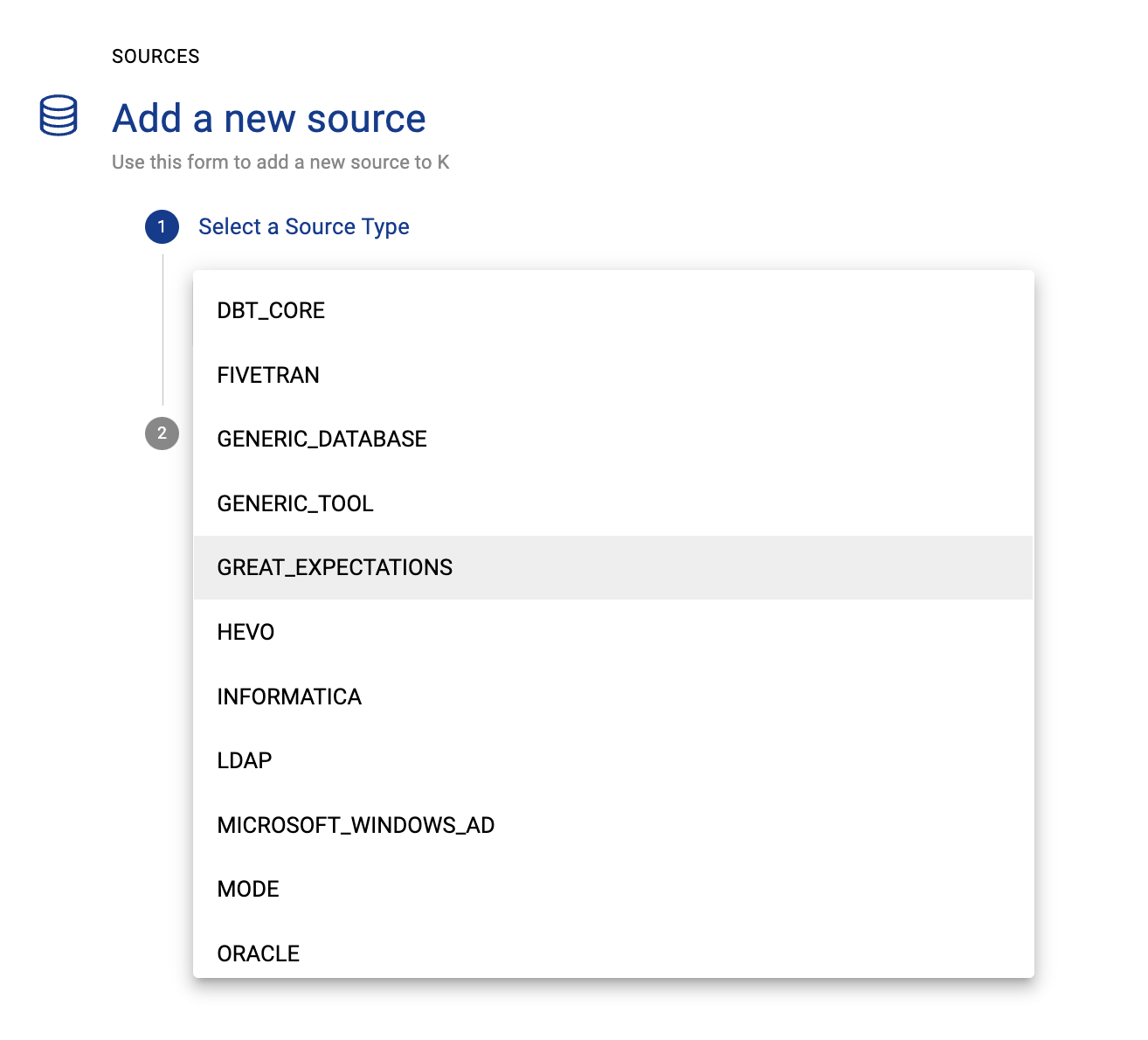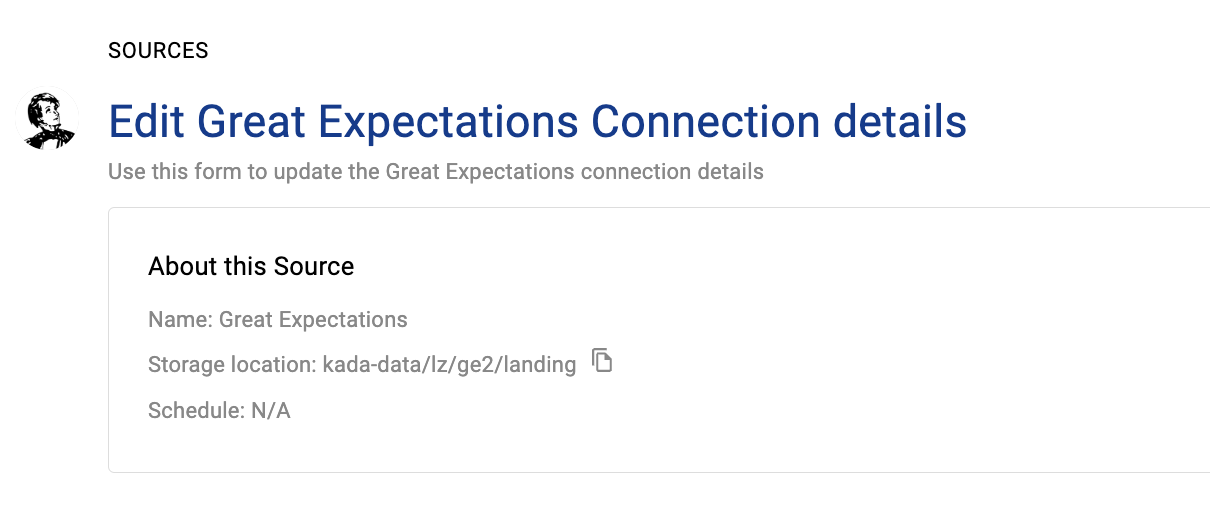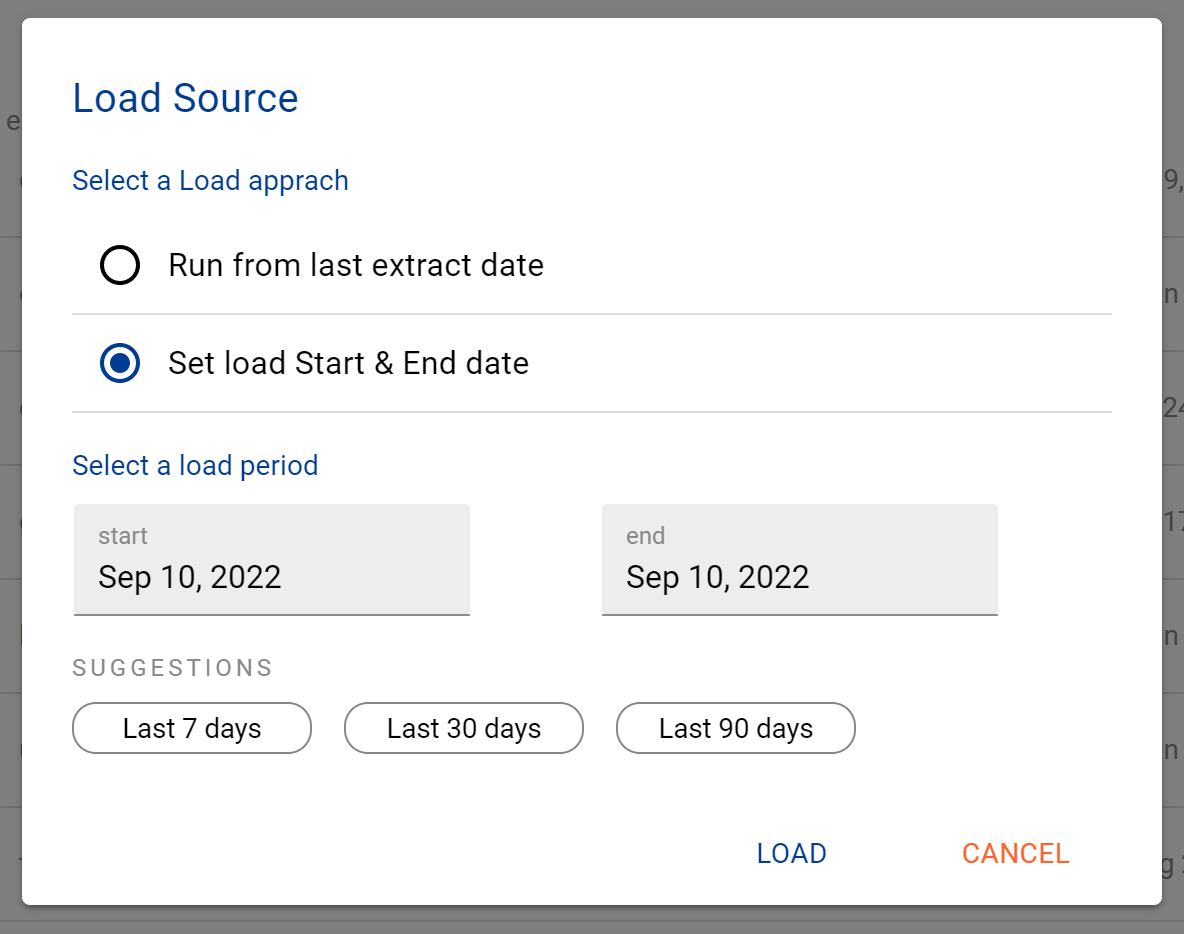Great Expectations (self hosted)
This page will walkthrough the setup of Great Expectations (self hosted) in K using the direct connect method.
Integration details
Scope | Included | Comments |
|---|---|---|
Metadata | YES | See limitations below |
Tests | YES | Expectation results are captured |
Lineage | YES | Linkages to targets are captured |
Inferred data connectors for databases are currently supported. SQL run time data connectors for databases will be added in upcoming sprints.
Spark data connectors for files are not supported.
Step 1) Results from Great Expectations
After setting up and scheduling your Great Expectations checkpoints, you need to
Update the expectation results to be uniquely named
Configure the results to be pushed to the landing folder created in Step 3
A GE plugin is available from Kada that can simplify the above process. Please reach out to support@kada.ai to find out more.
Step 2) Add Great Expectations as a New Source
Select Platform Settings in the side bar
In the pop-out side panel, under Integrations click on Sources
Click Add Source and select Great Expectations

Select Load from File and add your Great Expectation details and click Next
Fill in the Source Settings and click Next
Name: Give the Great Expectations instance a name in K
Host: Enter the Great Expectations server name
Click Finish Setup
Step 3) Configure the Great Expectations extracts
Click Edit on the Great Expectations core you just created
Note down the storage location

Schedule the Great Expectations results to land in this directory.
For details about how to push files to landing - see Collectors
Step 4) Schedule the
Select Platform Settings in the side bar
In the pop-out side panel, under Integrations click on Sources
Locate your new Great Expectations source and click on the Schedule Settings (clock) icon to set the schedule
Step 5) Manually run an ad hoc load to test the Great Expectations setup
Next to your new Source, click on the Run manual load icon

Confirm how your want the source to be loaded

After the source load is triggered, a pop up bar will appear taking you to the Monitor tab in the Batch Manager page. This is the usual page you visit to view the progress of source loads

A manual source load will also require a manual run of
DAILY
GATHER_METRICS_AND_STATS
To load all metrics and indexes with the manually loaded metadata. These can be found in the Batch Manager page
Troubleshooting failed loads
If the job failed at the extraction step
Check the error. Contact KADA Support if required.
Rerun the source job
If the job failed at the load step, the landing folder failed directory will contain the file with issues.
Find the bad record and fix the file
Rerun the source job
